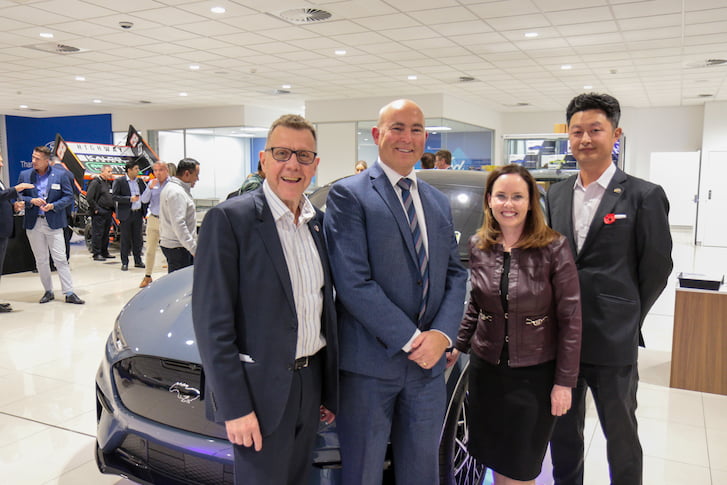A growing number of WA businesses are providing feedback to CCIWA through its Save our Skills campaign to help fight the Government’s planned changes.
The McGowan Government plans to remove the exemption for all existing employees on traineeships and to restrict it to new employees earning less than $100,000.
One of the businesses to express anger over the plan has branded a proposed grants scheme as a dysfunctional bureaucracy-based disconnect.
Ian Blevin, Managing Director of industrial high-pressure cleaning company Woma Australia, says the impact of the plan for WA business can’t be underestimated. He says that as a high-technology, growth engineering firm, it is critical that his company be able to continue to invest and reinvest in its people.
“As part of our annual performance review process we commit to ongoing training with our people and I am confident that it is one of the major factors behind our exemplary record of staff retention and our ability to maintain a unified, permanent team,” Blevin said.
Industry generated the revenue and profits that funded payroll tax, which Blevin added was an insidious, anti-employment impost.
However, the current ‘market-based’ payroll tax exemption system for trainees was, at least, in concert with industry demands and enabled it to identify skills related to specific workplace needs, ensuring investment in people and their future security.
“To implement a government policy-derived grants scheme is to impose upon business and employees a dysfunctional disconnect that is based upon bureaucracy and not upon efficacy,” Blevin said.
His comments come on the back of last week’s description of the proposal as “abhorrent”. High Energy Solution CEO Claire Ireland said individuals would suffer most through lack of training.
Mr Blevin said the application of a $100,000 cap underscored the lack of government understanding of contemporary business practice and of the high wage cost areas of the state, particularly those operating in rural and regional areas.
“Specifically, we are in the business of cross-skilling our workforce to gain improved manufacturing efficiency,” Blevin said.
He said the company intended to engage up to six apprentices this year, but a change in government policy may reduce this figure to two or zero. He added that the threat of overseas production relocation and outsourcing would once again become a real consideration.
CCIWA has launched a Save Our Skills campaign to fight the proposed exemption removal, describing it as flawed policy that leaves businesses to do the heavy lifting on upskilling and reskilling the WA workforce.
CCIWA Chief Economist Rick Newnham took the campaign to Bunbury this week, explaining the policy shortcomings to about 100 people, including Liberal South West member Steve Thomas, at a business luncheon.
Newnham said the current exemption made all the difference for South West businesses employing trainees.
“Taking someone on to do a traineeship is a pretty big ask, as you are often losing productivity from that person and it takes a lot of time training them up,” he said.
“So, often in that major decision-making point to the question ‘Are we going to bother putting someone on training?’, the payroll tax exemption makes all the difference.”
Nevertheless, the State Labor Government was pushing ahead with plans to remove the tax emption for existing workers on traineeships.
“We think this is an incredibly short-sighted decision,” Newnham said, noting that new technology such as automation was having a major impact on day-to-day work.
“Upskilling the workforce is crucial to keeping people in employment,” he said.
The luncheon was the official launch of Go Geo, a not-for-profit organisation striving to boost economic development in Bunbury and throughout the Bunbury-Geographe region.
► Will changes to the Payroll Tax Exemption impact your business? We need your help to Save Our Skills — visit www.saveourskills.com.au and share your story now.






